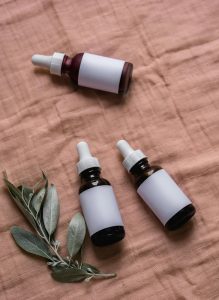It is unfortunate that the timing of Christmas in the middle of winter means that many people spend their favorite holiday in bed with the flu! This winter there is a lot of media hype about so-called “Aussie flu”, which is caused by the A(H3N2) virus, and is reported to have caused a small number of deaths. However, the reality is that flu viruses always pose a risk to elderly people and others with weakened imune systems, and are responsible for an average of about 500 deaths in Ireland every year. Although it is always important to take influenza seriously, this particular virus has actually been circulating for many years, and was one of the main strains of flu circulating in Ireland last winter.
The flu virus spread by small droplets of fluid, coughed or sneezed into the air by an infected person. These droplets can travel through the air for up to a meter, and infect anyone who breathes them in. The flu virus can also be spread if an infected person touches his or her nose or mouth, and then touches someone else. Likewise, if an infected person touches a surface such as a door handle with unwashed hands, the virus may be transmitted to another person touches the same surface.
The flu virus generally starts with chills, followed by a high fever, extreme fatigue, and aches and pains. These symptoms may be accompanied by a sore throat, cough, and nausea. Most people who get a genuine flu feel very ill indeed, and are generally unable to get out of bed for several days. The symptoms usually appear two to three days after exposure to the virus, and subside after a week or so, although the cough and feeling of tiredness may persist for much longer. In elderly people, pregnant women, and individuals with lung problems or weakened immune systems, catching the flu can be much more serious due to the increased likelihood of developing complications such as pneumonia.
Unfortunately, antibiotics are not effective in the treatment of flu, since it is caused by a virus rather than by bacteria. Antiviral drugs such as Tamiflu may be prescribed for people at high risk of becoming severely ill, such as elderly people or those with weakened immune systems, but they generally need to be taken within the first 48 hours after symptoms appear. They may also cause side effects, and are of no real benefit to otherwise healthy people who are unlikely to develop complications from the flu. Paracetamol and ibuprofen are widely used to reduce fever and treat the aches and pains that accompany the flu, but they tend to reduce the immune response to the virus and may therefore prolong the illness.
As usual therefore, prevention is better than cure. Wash your hands frequently with ordinary soap and water, and keep surfaces such as door handles, telephones and computer keyboards clean to help minimize exposure to the virus. Always use a tissue to cover your nose and mouth when you cough or sneeze, and put it in the bin straight away.
There is a vaccine available, which usually helps to reduce the risk of developing flu. However, recent research has found that the flu vaccination is not anywhere near as effective as has been claimed, and that the reduction in cases of flu is more likely to be due to prior exposure to the virus during flu epidemics.
The flu vaccine is recommended for older people and those with weakened immune systems. However, elderly people often do not produce sufficient antibodies to produce immunity after vaccination, due to a weaker immune response. In recent years the flu vaccine has also been marketed towards healthy people who are at low risk of complications. However research has shown that in lower risk groups, getting the flu jab every year may actually reduce the ability of the immune system to fight off new strains of the flu virus after 2-3 years of repeated vaccination.
Fortunately however, there are many safe and effective ways to boost your immune system, to help to minimize the risk of catching the flu, and to improve vaccine efficiency in people who still wish to get their flu jab.
One of the best herbs for enhancing immune function is Echinacea. It has an excellent reputation for helping to resist infection. Astragalus is another immune tonic, which has been shown to help prevent infection, and improve the response to vaccination in elderly people and those with weakened immune systems. Elderberries contain immune boosting vitamins A, C and bioflavonoids, and a number of scientific studies have shown that elderberries are active against various different strains of the flu virus. In controlled clinical trials that compared elderberry extract with placebo in the treatment of influenza, patients taking the elderberry extract had significant improvements in their symptoms within two-three days. On average, the flu symptoms lasted about half as long in those taking elderberry extract compared with those taking the placebo.
If you are unfortunate enough to catch the flu, make sure you keep warm, get plenty of rest, and drink plenty of fluids to prevent dehydration. Your local medical herbalist can provide an individually tailored blend of herbs to improve immune function, help fight the infection, and provide relief rom symptoms.











